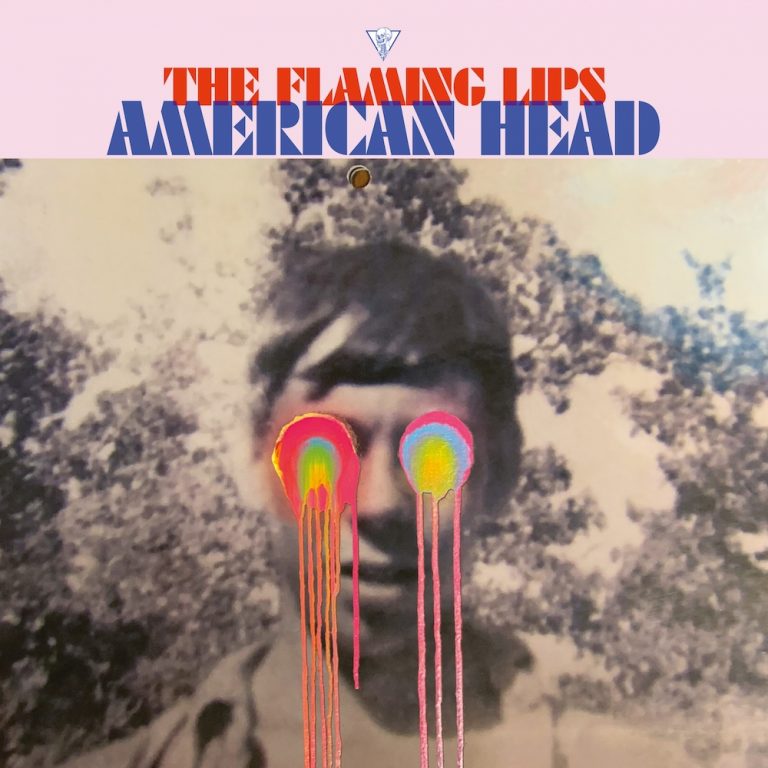It’s kind of hard to believe that The Flaming Lips have now released music in five different decades. They’ve been together for 37 years, and in that amount of time they have shown resilience to the changing of times by still doing exactly what they want, when they want. Continuously bucking traditions that define “rock music” in the 2010s, the Lips continued to released a bizarre string of tunes that while plentiful, never really felt like a proper follow-up to 2009’s immaculate Embroyonic.
The cycle’s been broken with American Head, unquestionably the finest hour from the Flaming Lips in over a decade. Not to be completely dismissive of their 2010s output, but most of their albums and projects didn’t compare to their 90s and 2000s work, undoubtedly the peak of their career; the lowest point being their involvement with Miley Cyrus on her embarrassing 2015 album Miley Cyrus and Her Dead Petz. But that’s in the past now, and what we have with American Head is a less experimental, a less flamboyant, and yes, a less flaming, Flaming Lips.
When The Terror was released out in the world back in 2013, it represented a shift for the band. Usually between albums the band would take little detours into passion projects – some great (The Flaming Lips and Heady Fwends) and some ludicrous (With a Little Help From My Fwends, which had a good cause) – but they’ve always pulled themselves back into their world. Unfortunately The Terror, while a decent album, seemed to show the band coming across as disillusioned with music, and thereafter more time was spent on freaky collaborations than actually delivering some semblance of quality.
This time around, on American Head, the Lips purposefully chose to record their 16th proper studio album with their American roots in mind. A whiff of Americana is ever present right from the start with “Will You Return/When You Come Down”, the marvellous opener that pushes leader Wayne Coyne to his most subdued, hearkening back to the Soft Bulletin favorite “A Spoonful Weighs a Ton”. “Now you’re on the run / Flower head / now all your friends are dead / and their ghosts / floating around your bed,” he sings, coming across more reflective as he’s accompanied by orchestral swirls with electric guitar ornaments. If there was ever an album by the Lips to be labeled as ‘folk’, American Head would be it. Many of the elements and instrumentation utilized feel like Surf’s Up-era Beach Boys – tuneful and somber, ageing but still going strong.
The synths and auto-tune adorning Coyne’s vocals on “Brother Eye” convey the heartbreaking lines “Brother, can you live forever? / Brother, I don’t want to cry” with remorse; Coyne has stated recently that American Head is based on feeling, and that the band didn’t want to hear it as sounds but feel it instead. This makes American Head one of the more emotionally resonant Lips records to date, which comes across when listening to the largely instrumental “Watching the Lightbugs Glow”; as it glides through the eardrums with ease it feels somber, but not without hope. Above all else American Head is as close to a “chill” Flaming Lips record as you’re gonna get these days. “Flowers of Neptune 6” is a prime example, with its pillowy strings and fluffy keys, plus the random assist from Kacey Musgraves all sound like a maturing and wiser band.
Speaking of Musgraves, she makes a more impactful injection on “God and the Policeman”, as she and Coyne duet magically. It’s a truly wonderful moment to hear the two bounce off each other so perfectly, and it represents one more highlight to American Head before it closes with “My Religion is You”, another heartfelt send-off by the band. If there’s a track to sum up the direction and feel of American Head, it’s this one – with its plain but warm strumming to emphasize Coyne’s dramatic tone, plus the fact that it’s one of the more ‘pop’-laced moments from the Flaming Lips in years.
Over the course of its 13 tracks, American Head shines the most when compared to where the Flaming Lips started and how they’ve come to this point. Regardless of how minimal this record feels, when put side-by-side with At War with the Mystics or even the inarguable classic The Soft Bulletin, it still presents a different side of the band. It’s intriguing that, in 2020, the Flaming Lips opted to strip things down to this degree and write an album that has more soul to it than their last decade of work.
The current line-up of the band has been together since 2015 as a seven-piece unit, which is the longest iteration the band has ever had, and for the first time in a while they sound complete. It’s truly telling to hear a Flaming Lips album that doesn’t explore the outer rings of Saturn, instead it keeps things mostly (by their definition) grounded on Earth. This is them coming to grips with their heritage and their age, although it’s no swan song. But American Head does what its predecessors haven’t been able to do – it shows the Flaming Lips still know how to write thoughtful and sincere songs that also tap into the psychedelics their fans have come to expect.

